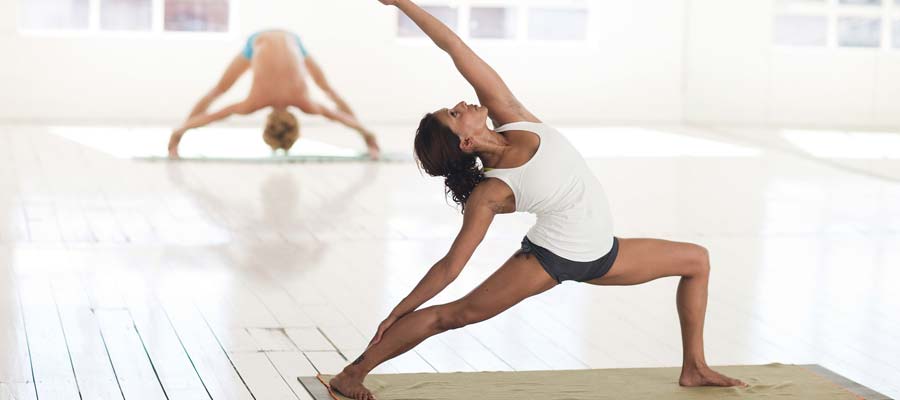Many people forget or ignore both the short – and long-term benefits of exercise and avoid it due to a comfortable lifestyle. Two primary chemicals involved in making exercise feel good are cortisol and endorphins. Cortisol is a hormone produced by the body under stress such as anger, fear or anxiety, and it ultimately inflames and damages our organs.
Exercise burns cortisol and thereby makes us healthier and happier. Sure there are long-term benefits, such as lowering your blood pressure, improving your strength and endurance1, getting a trimmer physique2 and the confidence that goes with it, but exercise simply makes you feel good. Who in the world wouldn’t want to feel good?
In just a few minutes exercise burns off stress hormones and raises endorphin levels (the happiness hormone); that’s a quick fix for a problem, any problem…. Also, the connection between exercise and intelligence is well established. If you think exercise is only good for your heart and weight, then think again. Exercise is the best thing you can do for your brain. That’s true on every level, including your IQ and EQ; in other words, your cognitive3 and emotional intelligence. So get up and hit the gym, swimming pool, yoga class, soccer field or running track. Whatever, just don’t sit all day on that part of your body that is supposed to look great. By sitting on it, that won’t happen.
Stop admiring the stars with their great bodies.
Those shapes didn’t come for free and it takes dedication, discipline and a certain obsession with your body image. It all is in you. Find it. Whatever your reason is, do it. Get inspired by:
Red-carpet bombshell Megan Fox, who counters4 the effects of her ”really big sweet tooth“ by drinking apple-cider vinegar and water. She exercises at least 5 times a week. Or Beyonce who has a more musical approach to her workouts. Beyonce puts on a song that she really likes and does biceps curls the whole song.
Starting a fitness program may be one of the best things you can do for your health. Physical activity can reduce your risk of chronic disease, improve your balance and coordination, and help you lose weight; it can even improve your sleep habits and self esteem.
You probably have some idea of how fit you are. But assessing and recording baseline fitness scores can give you benchmarks against which to measure your progress. It‘s easy to say that you‘ll exercise every day. You need a plan. Start slowly and build up gradually. Give yourself plenty of time to warm up and cool down with easy walking
or gentle stretching. Work your way up to 30 to 60 minutes of exercise most days of the week. The hardest part is to stay motivated. There will be times when you will really want to give up.
If you have no time.
Take it easy, let´s say, exercise for 20 minutes, three times a day. Are you willing to admit that your life is so out of control that you can‘t spare even this short amount of time?
If you hate gym.
Do workout that requires no equipment. Add the benefit of outdoor to it. We all can walk, right??
If you loose your interest.
Try to stay fresh and focused by keeping the workout short and the music pumping…
If it is too hard.
Don’t over do it. You can customize5 a workout for you—whether you’re a beginner, intermediate, or expert.
Redo your personal fitness assessment6 six weeks after you start your program and then again every three to six months. Give yourself a lot of credit for what you’ve achieved. Be good to yourself! You may notice that you need to increase the amount of time you exercise in order to continue improving. Or you may be pleasantly surprised to find that
you´re exercising just the right amount to meet your fitness goals. If you lose motivation, set new goals or try a new activity. Exercising with a friend or taking a class at a fitness center may help, too. Starting an exercise program is an important decision. But it doesn‘t have to be an overwhelming7 one. By planning carefully and pacing yourself8, you can establish a healthy habit that will last a lifetime.
Andrea Coddington
Vocabulary
1/indju∂r∂ns/ odolnosť, vytrvalosť – odolnost, vytrvalost; 2/fi zi:k/ upravenejšia stavba tela, postava – upravenější stavba těla, postava; 3poznávacia – poznávací; 4čeliť, vyvažovať – čelit, vyvažovat; 5upraviť, prispôsobiť – upravit, přizpůsobit; 6hodnotenie – hodnocení; 7nezdolateľné – nezdolatelné; 8udržať sa v tempe, držať si tempo – udržte se v tempu, držet si tempo

